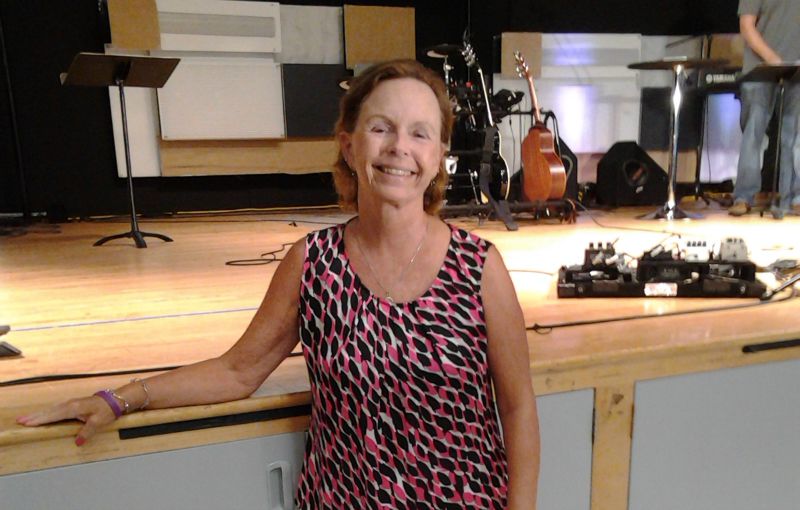Sometimes, when Sharron Warren blogs about living with early onset Alzheimer’s disease, she can’t find the letters she needs to type words.
She stares at the keyboard for a couple long, agonizing minutes, her fingertips hovering, searching for the letter, but it’s missing.
So she calls for backup in the form of her husband Tom, who is legally blind. He can still see out of his peripherals, so he helps her solve the mystery of the missing letter, and the blogging continues.
“I get angry when I fail at something,” Warren writes in a June 30 post on her blog, titled Sharon Warren’s Journey with Alzheimer’s. “I get angry because I know what’s happening and I cannot do a thing to stop it. I weep as Tom holds me. As I cry I hope the people who know me will remember me the way I am now.”
She’s writing about her life experiences to tell the Alzheimer’s community— patients, caregivers and loved ones—that they are not alone, and that the more people hear about the disease firsthand, the better chance there is of one day finding a cure.
“I’m there to tell them that I am the face of Alzheimer’s and there are all different people out there and if you’re having any kind of issues you need to go be tested,” she says.
Her blog topics include advice for caregivers, information music therapy, medication, research, support groups, exercise and more. She writes down her frustrations, from breaking her leg after falling off a stage to forgetting recent memories. She is constantly reading about the latest Alzheimer’s research and encouraging her readers to educate themselves.
The 67-year-old retired nurse watched her mother die from the disease and is the first of 14 female cousins to receive a diagnosis.
Like many dementia patients, she began noticing signs of memory loss knowing the disease ran in her family.
Thanks to her husband’s job as an engineer, Warren moved frequently and prided herself on quickly being able to navigate the roads of a new town. But after being settled in Williamsburg, Virginia, for a few months in 2012, Warren was still getting lost driving through the colonial streets. She was also constantly repeating stories and getting confused, which set off red flags for Tom.
“I think what brought it to a head was Tom said we need to have a talk. He had been there with my mother,” Warren explains.
The couple found support through the Center of Excellence in Aging, and Warren was tested by a neuropsychologist. At 65 years old, she received the same diagnosis as her mother, who passed away at age 73 after seven years of living with Alzheimer’s.
Two years later, Warren is holding her breath, waiting to see when she progresses to the next stage, the more severe stage of the disease. Right now, she is still able to write, and move around, and talk. She occasionally suffers from fascia and can’t get the words to come out of her mouth, but for the most part, her communication skills are still strong.
Tom is by her side to help her remember people’s names, to steer her through the streets of Williamsburg, and to serve as her travel companion. The two take trips often, to the Outer Banks, New Mexico, Arizona and Florida, and on cruises. They also volunteer with the Alzheimer’s Association, where Warren shares her story and attend support groups.
She is spreading the message while she can, so that one day there may be a cure for her four granddaughters, who have the possibility of inheriting the disease.







